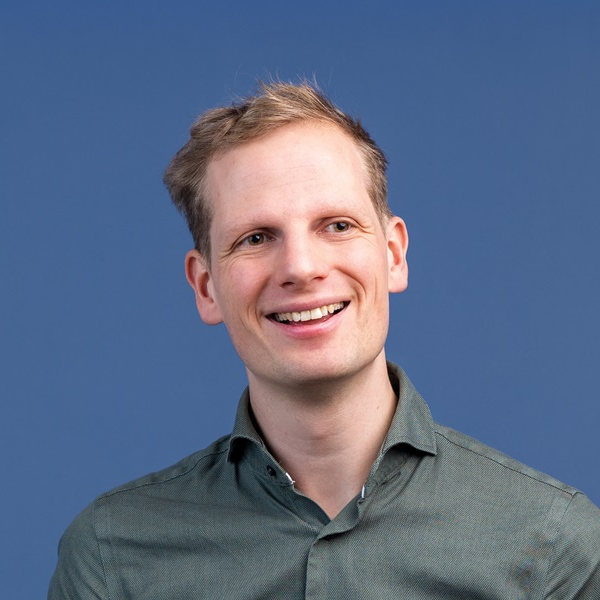Just van der Endt
Employee portrait

Just van der Endt
‘It’s impossible to only serve nature if you want an energy transition’
Consultant Just van der Endt is group leader of the Marine and Estuarine Ecology group at Witteveen+Bos. Together with the other members of his team, he works on reducing the environmental impact of projects at sea and on the coast. Just and his colleagues also identify opportunities to restore and promote nature.
Positive contribution
‘As a marine ecologist, I’m interested in everything that lives in salt water – at sea, along the coast, and on mudflats and salt marshes. When I applied for a job at Witteveen+Bos over five years ago, I began my application letter by saying that we’re on the verge of treating the North Sea in a drastically different way. I want to make a positive contribution to that. To meet our climate targets, we need to generate green energy at sea – through wind farms and, in the future, through developments such as offshore solar panels and hydrogen production. I’m an ecologist and I want to protect the natural world, but I also work on projects that put a strain on nature. That creates an area of tension.’
Nature exploits opportunities
‘That’s why I mainly focus on nature conservation measures, such as reducing underwater noise during offshore works, or building taller wind turbines that leave more space between the sea and the blades. That results in fewer collisions with birds.
I also work on nature-enhancing measures. My marine ecology professor used to say that nature exploits opportunities. It’s up to us to provide it with good opportunities. By using larger rocks for wind turbine foundations, for example, we provide the best possible opportunity for marine life to attach itself, allowing a natural reef to grow. That’s nature-inclusive construction. It’s impossible to only serve nature if you also want to realise the energy transition. But if I know a project can be improved in the interests of nature, then I keep emphasising that to try to convince the client.’

Work as a training regime
‘When I started here five years ago as a relatively inexperienced employee, I was one of three marine ecologists. The group had just been formed and needed to prove itself. Now I lead the group, which currently consists of ten ecologists. By investing in knowledge and quality, we’ve really established a good reputation for ourselves. I used to row competitively at a high level, and I’m also quite fanatical in my work. For me, work is a training regime. Working hard is fine, but you need to rest too. By pushing your limits from time to time, you’ll improve. But you should never injure yourself. And when you’re tired, you need to be able to rely on your team.’
More information?
